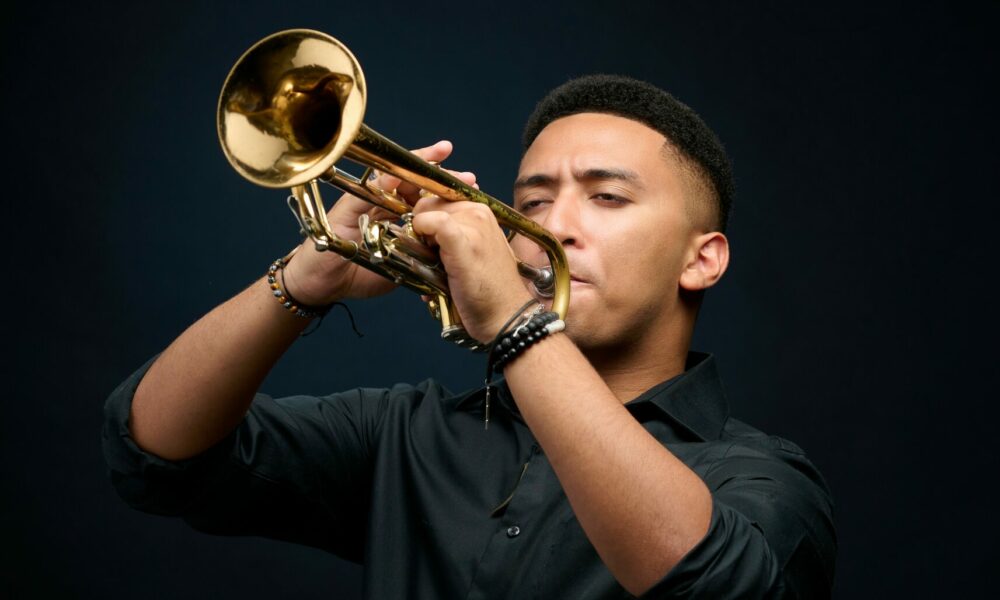

Today we’d like to introduce you to Robert Lampkin.
Hi Robert, thanks for sharing your story with us. To start, maybe you can tell our readers some of your backstory.
I guess what really turned my head towards music was being around my dad’s studio as a kid and seeing him work with his equipment and the occasional musician that’d pop in to record. It was so cool to see how the process started and what went into bringing an idea and taking it all the way to the final delivery.
I blame my teachers, Mrs. Hill and Mr. Schmid for making music such an enjoyable and rewarding learning space, guiding my classmates and I through year after year of classes, from kindergarten to 9th grade, when I moved to Georgia. I have to say I was blessed to have brilliant music teachers all throughout my schooling (shoutout to Nick Garofalo at Chattahoochee HS).
I picked up trumpet in the 5th grade and studied until my senior year of high school when I began tutoring trumpet online. Around freshman year of high school, I started listening to songs and replicating them by ear on my little Casio keyboard with a 6 track recorder. At some point in 2016, I began teaching myself music composition, and by my senior year of high school, I was determined to pursue a career in film scoring. In 2018, I took a gap year between high school and college to learn networking, film music history, composition fundamentals, and whatever I could get my hands on. Between 2019 and today, I’ve been learning and growing while taking on projects from around the world, honing my skills, and crafting a voice for myself.
During my time at Kennesaw State, I’ve been studying marketing at the Coles College of Business as well as Music and Entertainment Business with the Joel A. Katz MEBUS Program. I also had the pleasure of taking part in both the NYU Film Scoring Summer Workshop and auditing the Los Angeles Film Conducting Intensive last year. I have a lot left to learn, and I don’t plan on stopping anytime soon. In the coming years, I hope to participate in the LAFCI and study for my master’s in Film Scoring at USC Thornton.
Can you talk to us a bit about the challenges and lessons you’ve learned along the way. Looking back would you say it’s been easy or smooth in retrospect?
Since most of what I know in film scoring has been self-taught over the last seven years, the biggest challenge was filling the gaps in my knowledge and discovering the kinds of questions to ask in order to get the answers I need. Early on, I had some tech limitations, where about half of my projects would crash, and a few too many hours of work would be lost. But with that resolved now, combined with a more solid learning structure, I feel the road ahead will be much smoother.
I think aside from those physical/educational barriers, half the battle is in your own mind. In such a competitive industry, you can find yourself struggling to keep a level head. Finding a rhythm and really being able to push through those rough spots is important. I think a lot of people in creative industries, at one point or another, start to lose hope or motivation to keep moving, and that’s definitely something that I’ve had to learn and grow in. Imposter Syndrome creeps in every now and then, but over the years, it’s gotten much easier to deal with and grow out of.
Thanks – so what else should our readers know about your work and what you’re currently focused on?
I work as a film music composer, crafting custom music scores for films, video games, and any other media that require a music underscore.
I’m most proud of providing additional music for the Harry Potter Magic Caster Wand last year. It was a really fun project to be a part of, and the team involved is phenomenal to work with.
I’d say that because I learned most of my music knowledge in a bubble, only recently supported by traditional studies, my sound is more unique, as well as my approach to getting the director/editor the music they want. I also place a huge emphasis on details and making my music sound like a real orchestra when using sampled virtual instruments.
We’re always looking for the lessons that can be learned in any situation, including tragic ones like the Covid-19 crisis. Are there any lessons you’ve learned that you can share?
Being an effective communicator, I think, has never been more important. With so much remote work, you have to be able to communicate effectively across various channels. I also think being able to use Zoom is a must-have skill!
Contact Info:
- Website: https://www.robertlampkinmusic.com/
- Instagram: https://www.instagram.com/robert_lampkin_music/
- Linkedin: https://www.linkedin.com/in/robert-v-lampkin-91114b1a6/
- Youtube: https://www.youtube.com/@RobertVLampkin
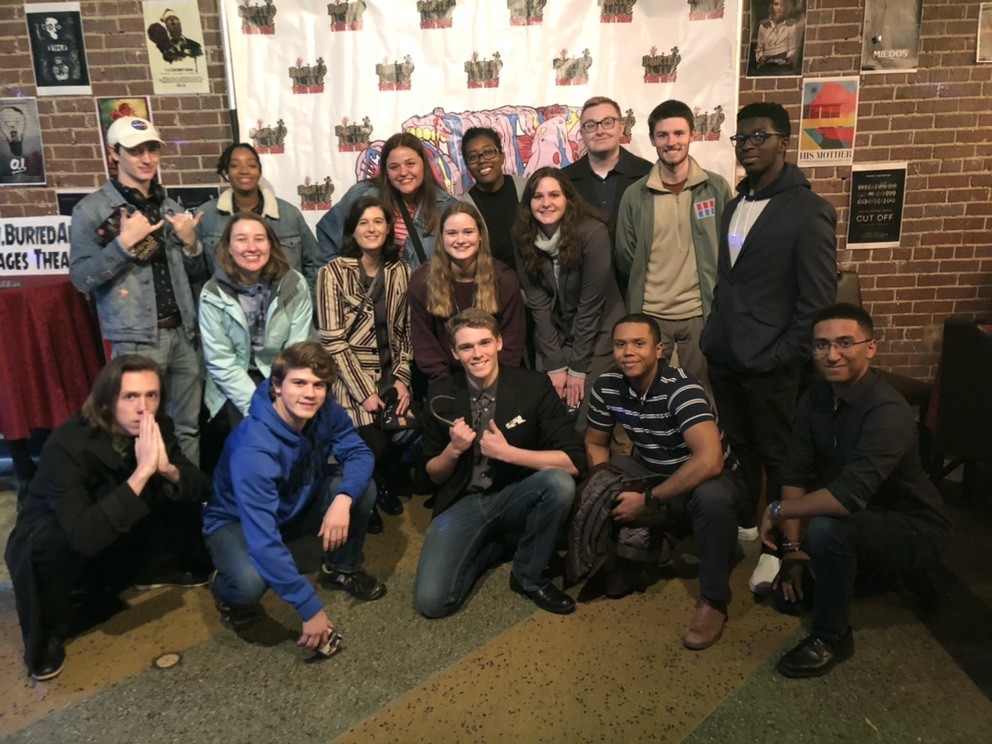
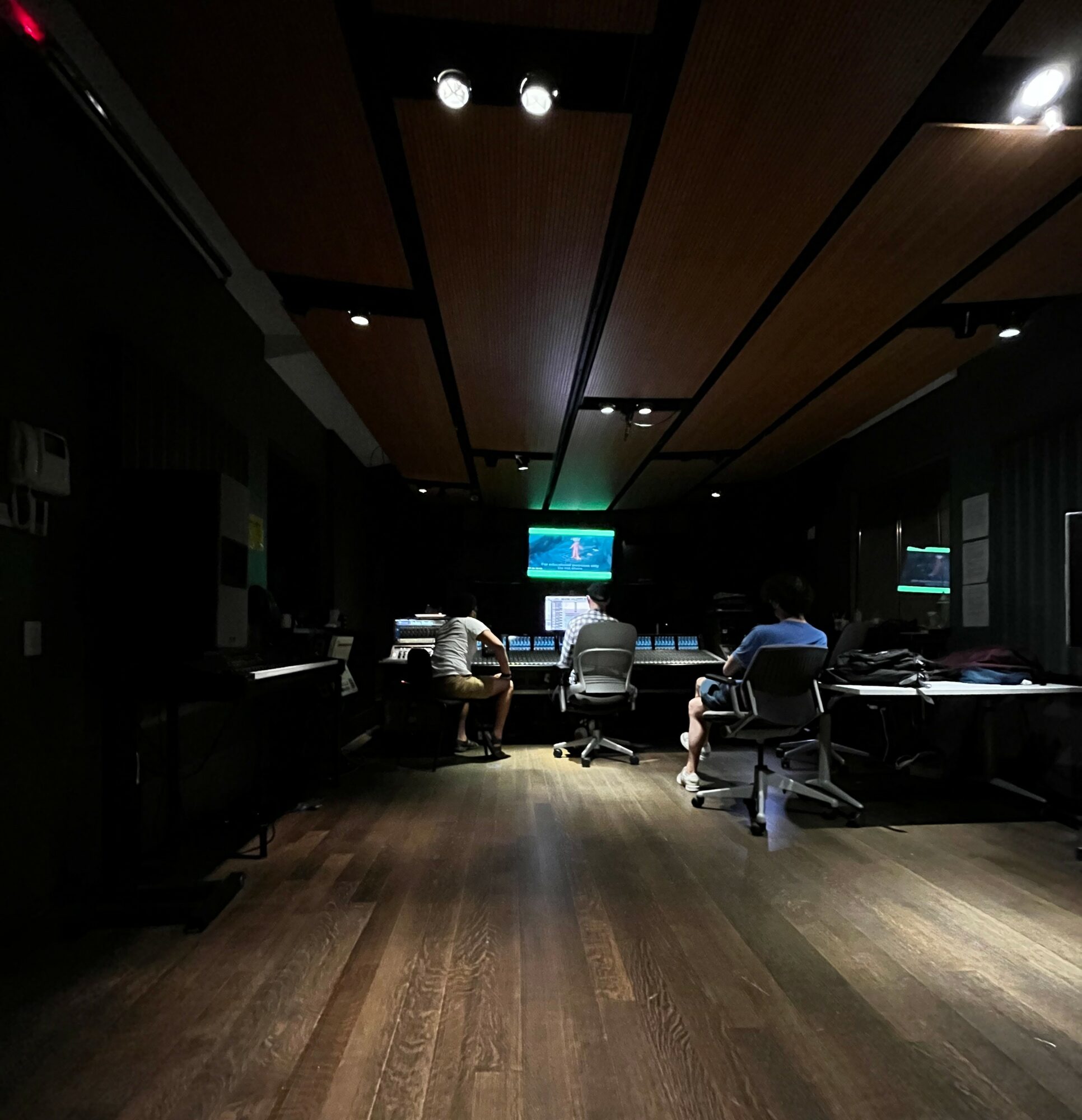
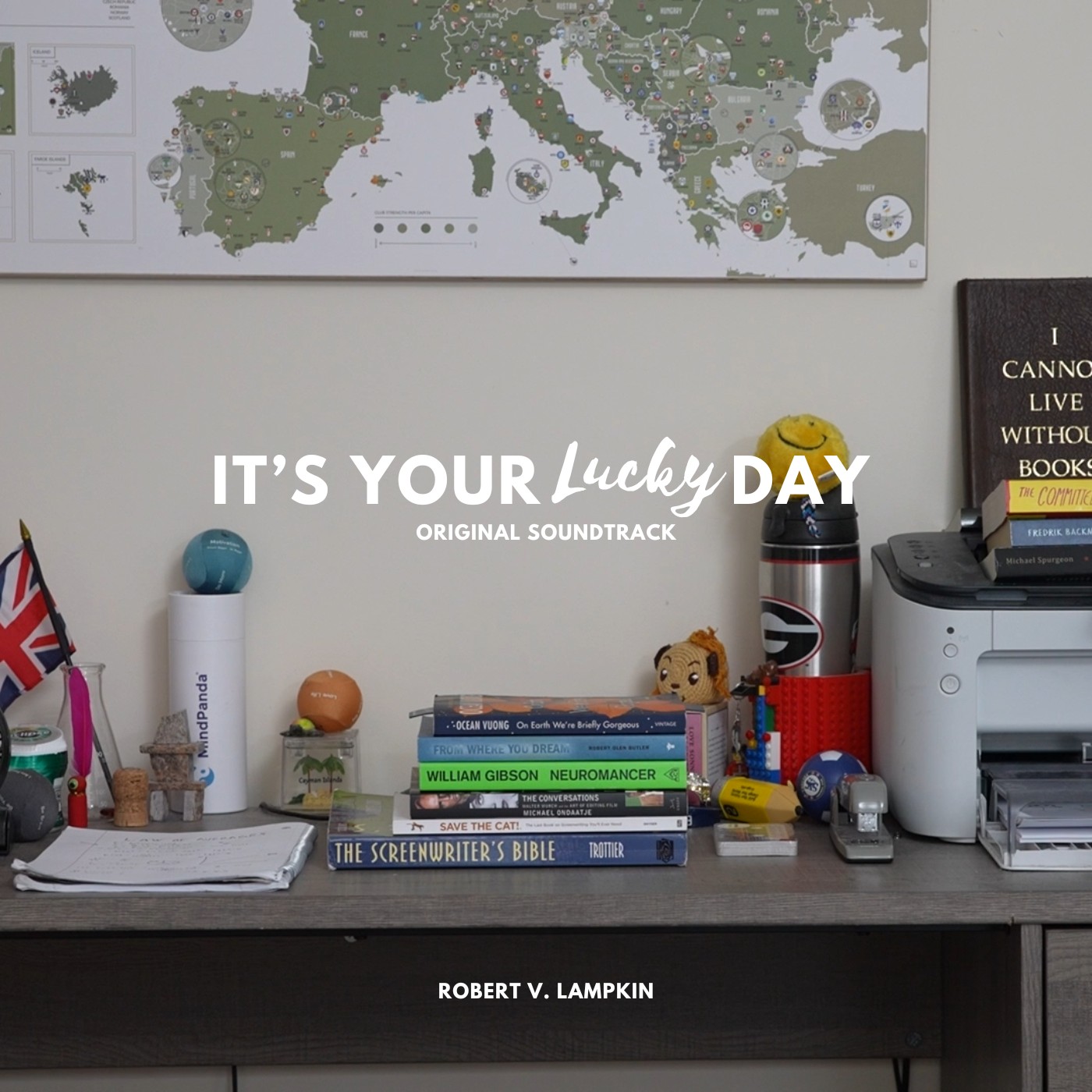
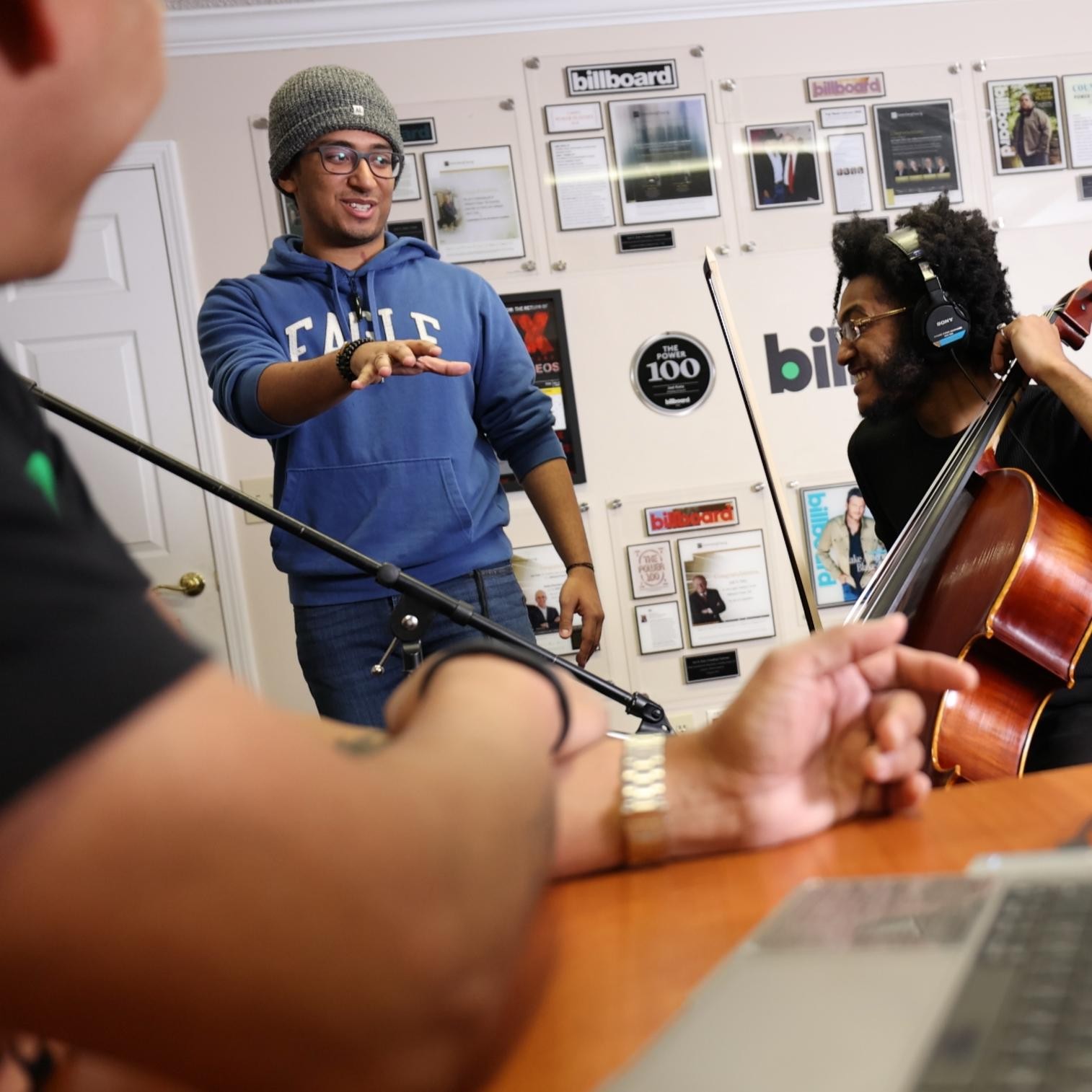
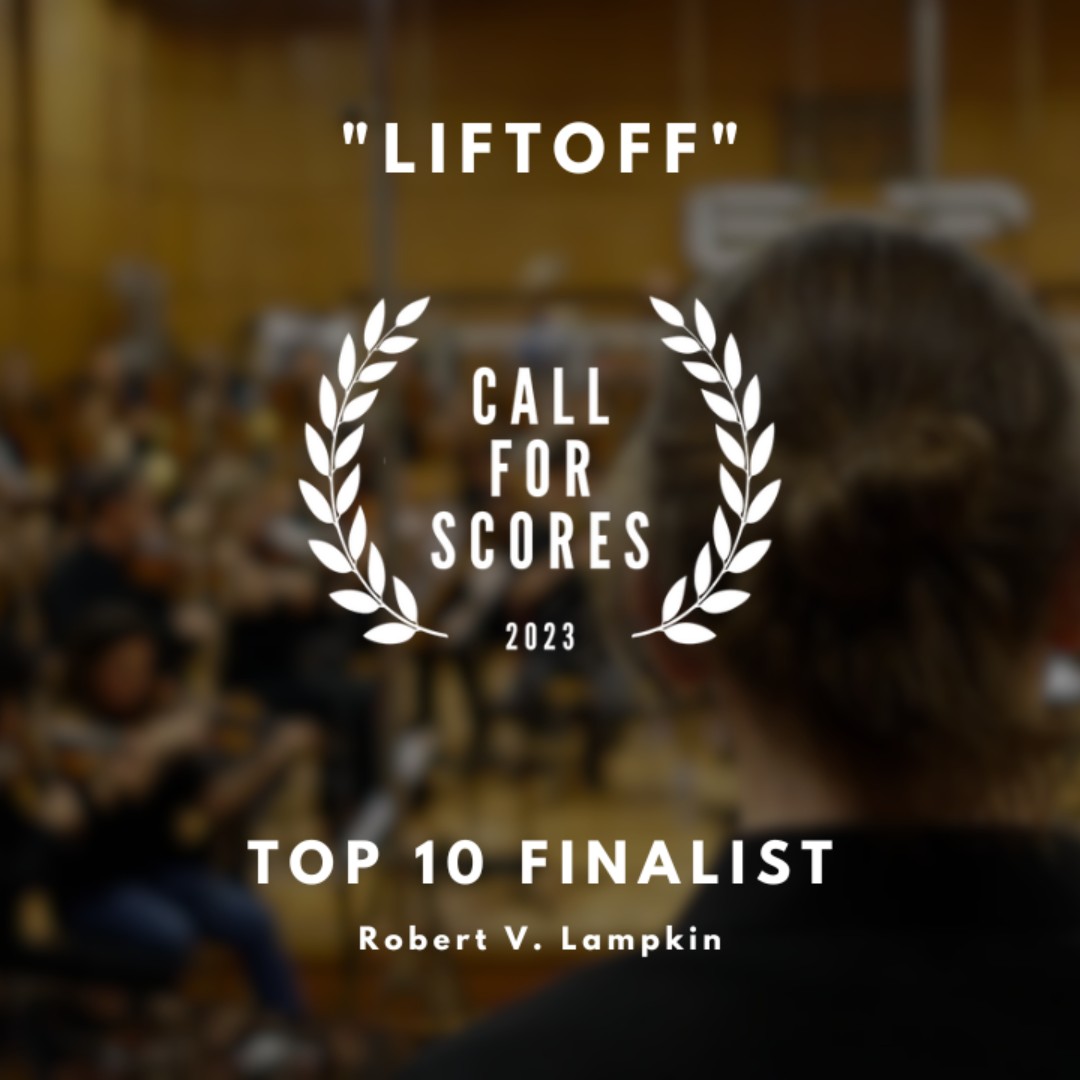 Image Credits
Image Credits
Arman Kouchak David Caselli













